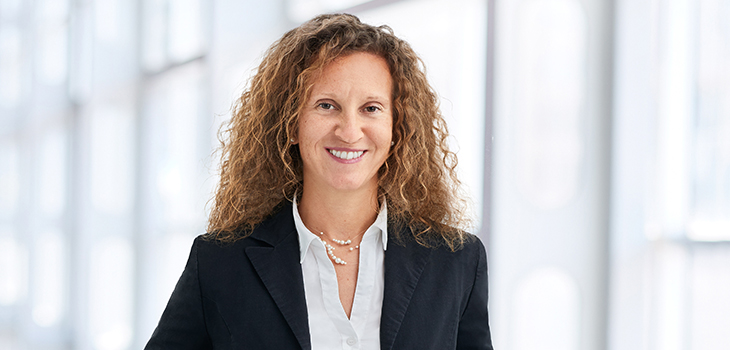
During her visit to Bavaria, Québec’s Minister of International Relations and La Francophonie, Nadine Girault, highlighted the appointment of Investissement Québec’s new representative in Munich, Marie-Andrée Bernard.
Investissement Québec’s Munich office, which was opened in 2005, supports businesses in the German-speaking nations (Germany, Austria and Switzerland) that wish to set up shop in Québec.

With 16 years’ experience in government relations and almost eight years in Germany, Marie-Andrée Bernard was a natural to be appointed Business Development Director at Investissement Québec’s Munich office. Furthermore, this appointment is aligned with the vision of the new government, which wants to strengthen Québec’s economic role internationally.
Besides being a perfect match, Marie-Andrée has a wealth of knowledge that will unquestionably help her build close ties with German entrepreneurs who are looking for new horizons. We seized the opportunity created by her arrival in her new position to ask her some questions about potential difficulties and the future of the cooperative relationship between Bavaria and Québec initiated in 1989.
What do Québec and Germany have in common?
The business mindset in Germany is not very different from ours in Québec, and we feel quite at home in many regions. For example, Bavarians, like Quebecers, are very attached to their traditions and celebrations, while still having a knack for innovation and creativity.
Many of their strongest industries are similar, including aerospace, information technology and life sciences. Like us, the Germans are focused on industries with a future and they invest a lot in research and development (R&D).
What are the most promising partnerships between Québec and Germany?
This year, we’re celebrating 30 years of Québec-Bavaria cooperation; this is one of Québec’s most dynamic international agreements. And there are many economic and research projects in sectors such as multimedia, environment, sustainable mobility and life sciences (personalized medicine, degenerative diseases).
The Hamburg region, which is one of Germany’s strongest economic drivers, is working closely with Québec and key players in Montréal in such sectors as aerospace, ports, transportation logistics, video games and artificial intelligence.
What can we learn from German business practices?
Germany is a decentralized country, which has eight economic centres, rather than a single hub: Munich, Stuttgart, Frankfurt, Düsseldorf, Hanover, Hamburg, Berlin and Dresden. This makes it a real powerhouse.
The Germans are very disciplined and organized and they don’t hesitate to invest in replacing machinery and equipment. And automation is much more prevalent than in Québec. They have some very interesting economic models such as the dual education system (training in both schools and businesses) and they have successfully integrated applied research with businesses.
Employees generally have more stable jobs and often remain at the same company for a long time. And family businesses are a key part of the industrial ecosystem and are very solid.
What is your vision for international economic development in 2019?
I believe a lot in a vision where different economic players work together to get stronger. I think that if companies work closely with research centres and universities, governments, clusters and boards of trade, and if they take joint action to break through internationally, the impact will be greater. In 2019, working in silos definitely doesn’t pay!
Which industries should we keep an eye on?
Right now, the Québec industries that the Germans are interested in are Industry 4.0, artificial intelligence, special effects, virtual reality, video games and sustainable mobility.
Other
sites
Productivité innovation website (in French only)
Compétivert(in French only)









